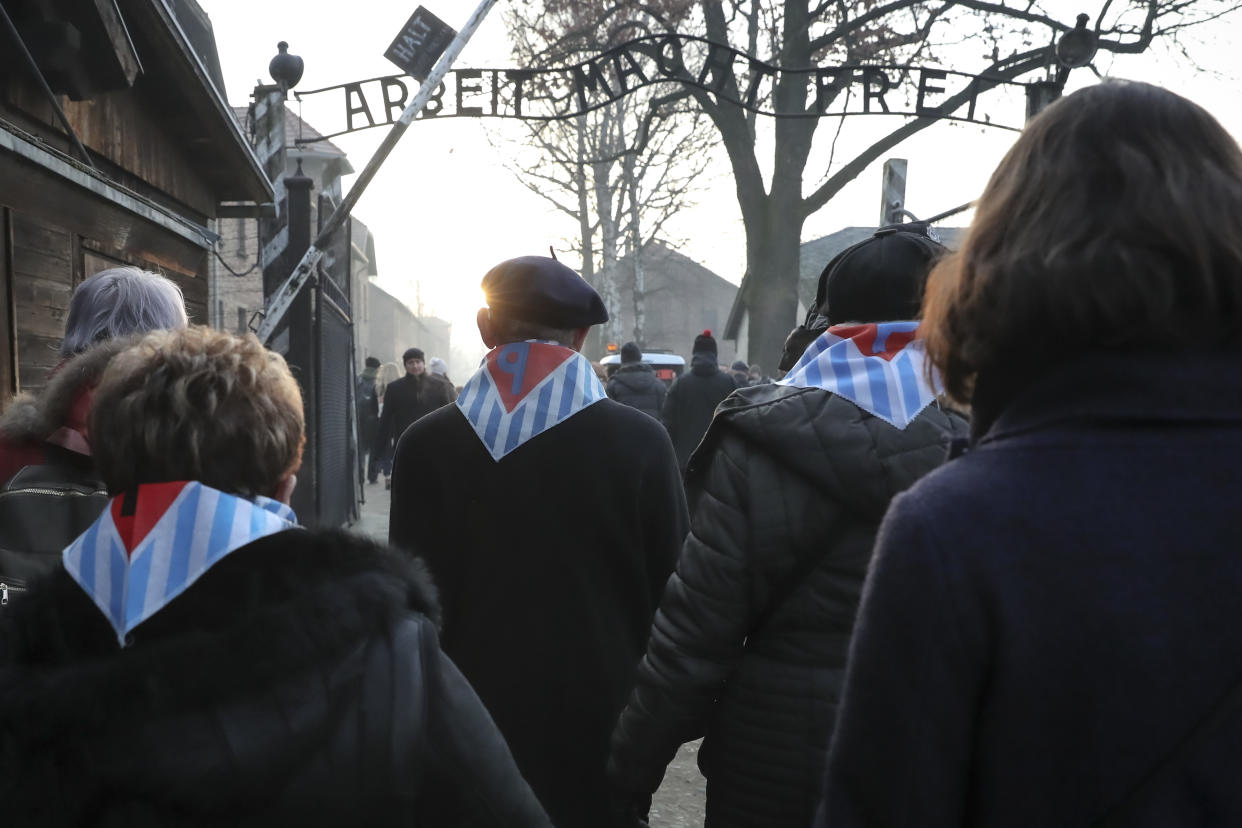A third of Brits say they know little or nothing about the Holocaust

A third of British people say they know little or nothing about the Holocaust, a survey has found.
The poll comes as survivors of Auschwitz return to the Nazi death camp to mark the 75th anniversary of its liberation.
Auschwitz, the largest of the Nazi concentration camps, was established in 1940 in German-occupied Poland, near the city of Oswiecim.
More than 1.1m men, women and children died there, of whom an estimated 1m were Jewish. 6m Jewish people were murdered during the Holocaust.


The YouGov survey asked a panel of 2,663 adults how much they feel they know about the Holocaust.
19% said they know a great deal, and 46% said they know a moderate amount.
27% said they know a small amount and 5% said they know nothing at all.
To mark #HolocaustMemorialDay we asked Brits how much they know about the events of the Holocaust:
A great deal - 19%
A moderate amount - 46%
A small amount - 27%
Nothing - 5%https://t.co/vwHn4FgHHW #Auschwitz75 pic.twitter.com/KrGDYh5bhe— YouGov (@YouGov) January 27, 2020
Older people were less likely to say they know nothing about the Holocaust – 1% of over 65s gave this answer compared with 8% of 25-49 year olds.
Speaking on Monday, the chief executive of the Holocaust Education Trust urged people do “do better” to call out anti-Semitism and commemorate the victims of the Holocaust.
Karen Pollock said: “I never thought when I started this work that I would have spent the past three years calling out anti-Semitism in mainstream politics.
“I didn’t expect to witness attacks on synagogues in Halle in Germany or in Pittsburgh.
“I don’t think any of the survivors thought they would witness what they have witnessed in their lifetime and it’s for their sake that we need to do better.”
READ MORE:
'I am here': Holocaust survivors mark Auschwitz liberation
Concentration camp survivor turns 100 on Holocaust Remembrance Day
Auschwitz was liberated on 27 January, 1945, when Soviet soldiers reached the camp.
The Nazis had been evacuating prisoners from the camp and had been destroying evidence of their crimes since mid-1944.
Between 17 and 21 January, 1945, about 56,000 prisoners were marched out of Auschwitz.
It is estimated that at least 9,000 people died during the evacuation.
About 7,000 prisoners lived to see the liberation of Auschwitz and were admitted to hospital or allowed to return home.


